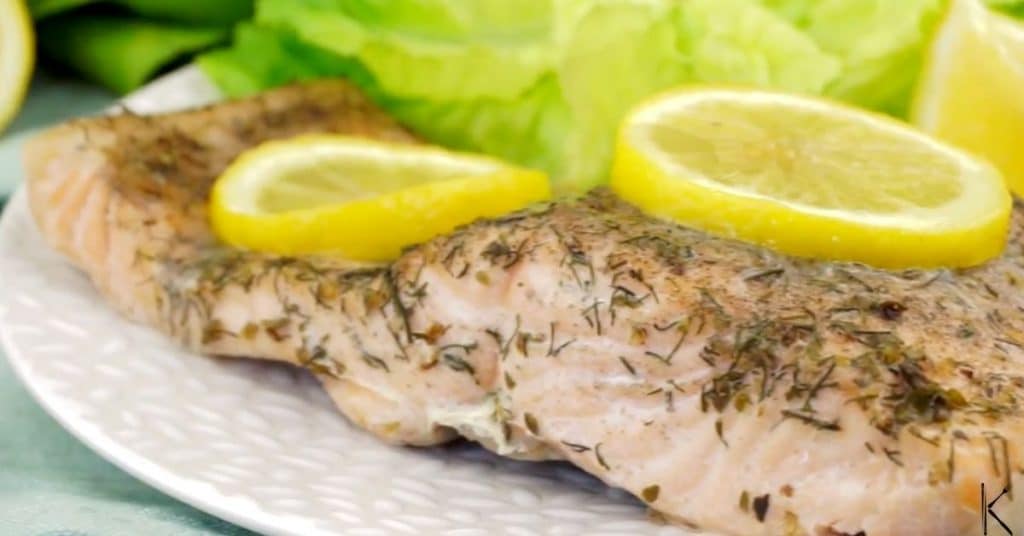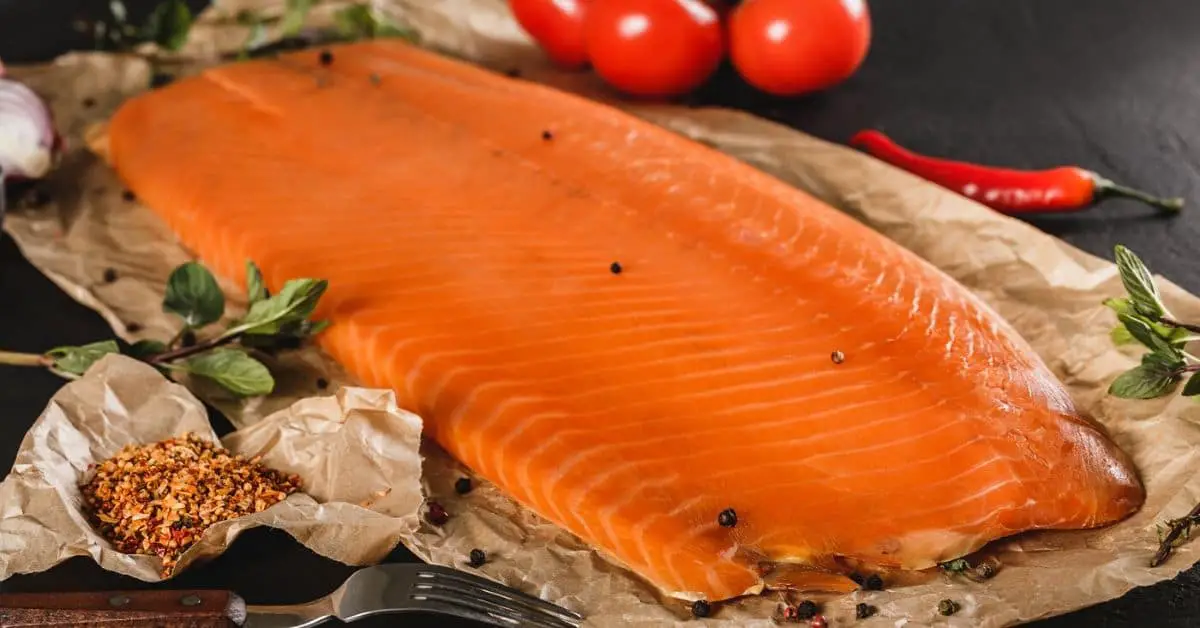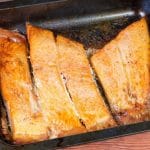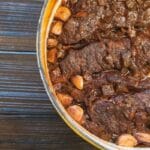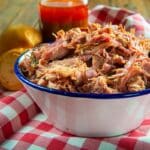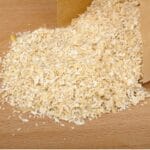In short, yes, you can freeze cooked salmon, but avoid freezing it with dairy-based sauces and ensure it’s properly cooled before wrapping to maintain its texture and flavor.
Salmon is highly valued for its nutritional value. This delicious fatty fish can be pricey depending on your location and certainly is a product you never want to see go to waste.
There are several benefits to freezing cooked salmon. Not only will you save on food waste, money, and cooking time later on, but freezing cooked salmon has a less fishy odor than raw salmon.
This may be a better choice to prevent surrounding foods from absorbing the strong flavor in the freezer.
Here’s what you need to know to freeze cooked salmon safely to preserve its quality and extend its shelf-life.
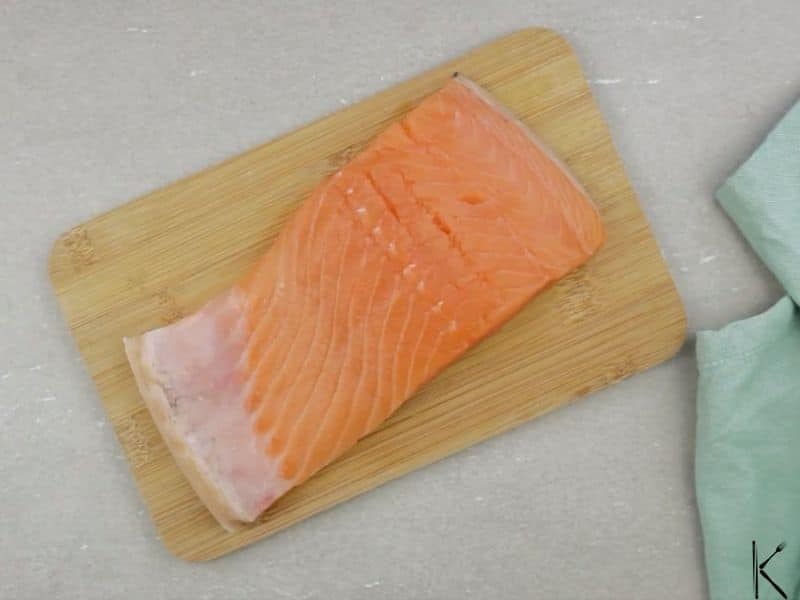
Can Cooked Salmon be Frozen?
Yes, freezing cooked salmon is a great way to extend its shelf life as long as the salmon is of a good, fresh quality and is not covered in any dairy-based sauce.
When freezing salmon, place it in the coldest part of the freezer to prevent the water content of the fish from crystallization during freezing.
The formation of ice crystals during freezing can also occur if the salmon is not properly cooled down before wrapping and will result in textural damage and soggy fish once thawed.
Leftover salmon is best for freezing if it has been poached, steamed, smoked, or grilled and is not mixed with dairy, oil, tomatoes, and onions as these may destroy salmon’s natural flavor due to acids and enzymes.
How To Freeze Cooked Salmon
Step 1: Cool
Cool the salmon to room temperature after cooking. To speed up the cooling process place it in the refrigerator.
Step 2: Portion
Use a sharp knife to cut the salmon into the desired portion sizes.
Step 3: Wrap
Wrap each individual portion in plastic wrap or aluminum foil, making sure all the corners are well sealed with no exposed gaps.
Step 4: Pack and Seal
Pack the wrapped salmon into a resealable freezer bag. Do not squash or overfill the freezer bags as putting too many pieces in one bag will slow down the freezing process causing textural damage. Press out as much air as possible before sealing the freezer bag.
Step 5: Label and Freeze
Label the bag with the contents and date of freezing. The freezer should always be set to 0 °F (−18 °C) for safe quality preservation of foods in the freezer.
How To Thaw Frozen Cooked Salmon
Remove the frozen salmon from the freezer and place it in the refrigerator to defrost overnight or for a few hours. Pat the salmon dry with a paper towel to remove excess moisture before reheating.
The best wat to reheat cooked salmon is in the oven, to preserve flavor and texture or it can be added to a pasta or stir-fry on the stove-top to warm through. Reheating salmon can also be done when it’s still frozen. Thawed, cooked salmon is best eaten within 24 hours and should not be cooled and reheated a second time.
If tiny ice crystals have formed over the salmon during freezing, it is best to discard the frozen fish as it will have an unpleasant flavor and texture.
Types of Cooked Salmon
Salmon is an oily fish that can be farmed or wild. The most popular types of salmon that are commonly available are:
- Chinook, also known as king salmon. It is ideal for slow roasting with its fatty flesh.
- Sockeye or red salmon has a vibrant orange-colored flesh and recognizably strong flavor.
- Coho salmon is a smaller fish with a slightly more subtle flavor and texture. It is ideal for grilling whole.
- Pink salmon has a lower fat content and is good for grilling. It is also the type commonly used for canned salmon.
Although fresh salmon is used raw in sushi, this versatile fish can be prepared cooked in a myriad of different ways including baked, grilled, pan-fried, seared, poached, roasted, and broiled.
Besides being eaten as an appetizer, or main protein, it can be incorporated in quiches, bagel fillings, omelets, stir-fry, and soup.
FAQs
Conclusion
Whether it is wild salmon, farmed salmon, or a salmon filet, this is a deliciously versatile and popular fish to incorporate into breakfast, lunch, or dinner dishes.
Cooked salmon freezes well and having it ready prepared in the freezer is a great time saver on busy nights. It is also a great money saver, preserving wholesome food which would otherwise have gone to waste.
Be sure to wrap the cooked salmon well when freezing to protect it from contact with moisture and air. Never thaw salmon at room temperature, but always in the refrigerator, or heat it from frozen.
Now you can easily make use of salmon grocery store deals and keep it well preserved in the freezer. Convenient, nutritious and delicious!
Up next: How to freeze smoked salmon
